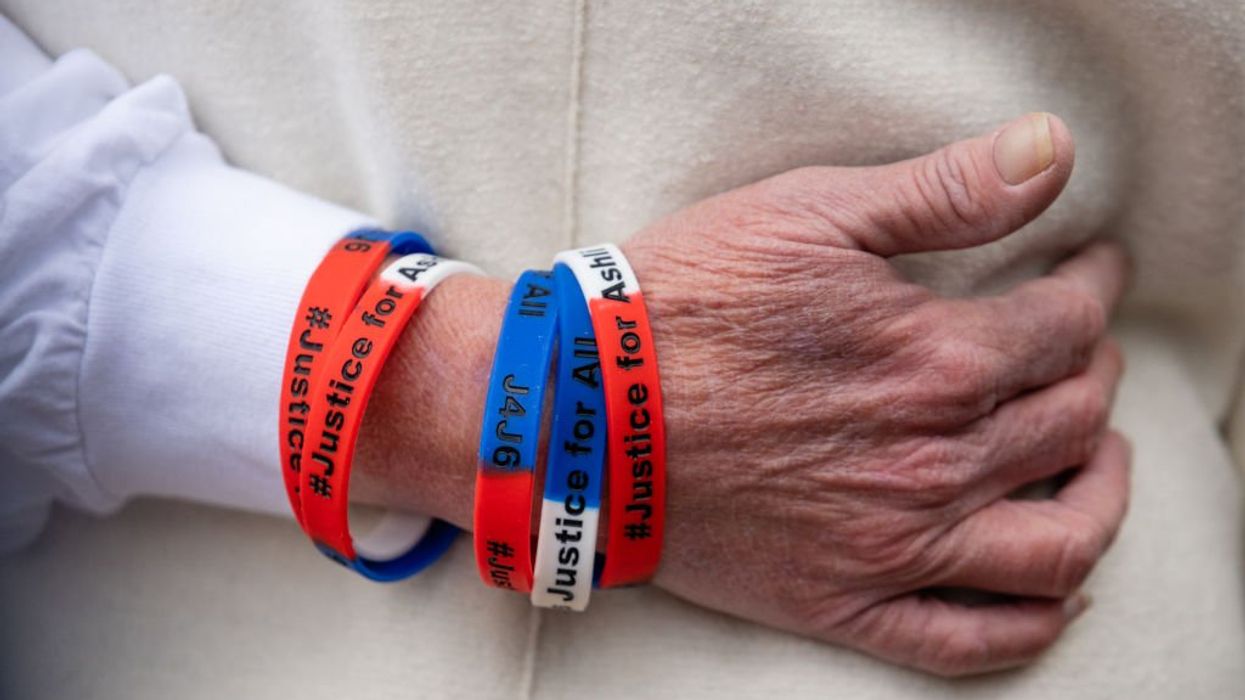
© 2024 Blaze Media LLC. All rights reserved.
"This seems to be a Democratic candidate tradition."
Scroll down for an update to this story:
- Reuters: U.S. asked U.K. to join in releasing strategic petrol reserves
- White House sources confirmed Britain would respond “positively”
- Anonymous White House staffer denies agreement
- Jay Carney denies U.K. and U.S. in agreement to tap oil reserves
During a meeting between President Barack Obama and British Prime Minister David Cameron on Wednesday, the two world leaders discussed the idea of releasing emergency oil reserves, Reuters reports.
It is now being reported that  the two have come to an agreement over the release of Strategic Petroleum Reserves (SPR).
the two have come to an agreement over the release of Strategic Petroleum Reserves (SPR).
"A formal request from the United States to the UK to join forces in a release of oil from government-controlled reserves is expected 'shortly' following a meeting on Wednesday in Washington between President Barack Obama and Prime Minister David Cameron, who discussed the issue," Reuters reports.
Two sources claim that Britain will respond "positively" to the request.
"We regularly consult with the British on energy issues and any discussion that we had was in that context. We will continue to monitor the situation and consult with them and others," an Obama administration official said.
However, Reuters notes that tapping the SPR could “antagonize allies in Europe, several of whom remain unhappy over last year's action and are unlikely to back another release,” according to the report.
“The head of the Paris-based IEA, Maria van der Hoeven, has said in recent weeks she sees no current need for consuming nations to release strategic reserves,” Reuters’ Matt Falloon and Jeff Mason write.
“Analysts say that Obama would likely prefer to press forward with the legitimacy of full IEA member support, but realistically may have to settle for the backing of just a handful of other consumer nations,” they add.
But, economically speaking, would releasing the SPR really help the economy?
Ed Morrissey of Hot Air doesn't think so:
The problem with the gasoline and oil markets isn’t a temporary disruption in a healthy supply, however, which is what the SPR is designed to buffer. The problem is a chronically and artificially suppressed supply, thanks to Democratic insistence on blocking domestic energy production and oil extraction over the last three decades or more.This is what Obama refers to as the “silver bullet,” claiming that expanding drilling and extraction is a short-term policy that won’t enhance American energy independence. That’s utter nonsense; drilling is a long-term solution that actually addresses the chronic supply issue and — not coincidentally — the trade imbalance, the weak dollar, jobs, economic growth, and a number of other issues in the American economy. If drilling is short-term thinking, then what can a one-time release from the SPR be called — the ADD solution?
Moreover, according to National Review's Jim Geraghty, the president's call to tap the SPR may be more about politics than addressing the U.S.’s economic issues.
 "[T]his seems to be a Democratic candidate tradition; Al Gore called for the same move while running for president in 2000," he writes.
"[T]his seems to be a Democratic candidate tradition; Al Gore called for the same move while running for president in 2000," he writes.
"Oil from the Strategic Petroleum Reserve has been sold five times in its history: Most recently in 2011 during the conflict in Libya; in 2005 after Hurricane Katrina; a sale of $227 million worth of oil during fiscal year 1996 to reduce the federal budget deficit; in 1990-1991 during Desert Shield/Desert Storm, and a small 'test sale' in 1985," Geraghty adds.
For the record, as Tina Korbe of Hot Air points out, as far as “long-term solutions” are concerned, gas prices actually increased last summer when the administration tried this during the Libya conflict.
UPDATE-- According to the White House, reports that the U.S. and Britain have agreed to release oil from government-controlled emergency reserves are inaccurate.
Oil had fallen toward $104 per barrels Thursday morning as several news organizations reported that President Barack Obama and Prime Minister David Cameron had agreed to release spare supplies of oil in an effort to drive fuel prices lower. Diesel prices have increased 3 percent in the United Kingdom this year while gasoline prices have jumped 17 percent in the U.S. because of an increase in oil prices.
Now a White House official is saying that all reports of a U.S./U.K. agreement are false.
UPDATE II -- “Among the many topics of discussion the British prime minister and president had were energy issues and the situation globally with the rise in the price of oil," White House spokesman Jay Carney said, according to the Washington Post, but added that “I can say very clearly that the report” that there was an agreement on releasing the SPR “is false. It is not accurate.”
“The report of any kind of agreement or timetable associated with an agreement on a course of action is just wrong,” Carney said.
The is a breaking story. We will bring you developments as they happen. The Associated Press contributed to this story.
Want to leave a tip?
We answer to you. Help keep our content free of advertisers and big tech censorship by leaving a tip today.
Want to join the conversation?
Already a subscriber?
more stories
Sign up for the Blaze newsletter
By signing up, you agree to our Privacy Policy and Terms of Use, and agree to receive content that may sometimes include advertisements. You may opt out at any time.
© 2024 Blaze Media LLC. All rights reserved.
Get the stories that matter most delivered directly to your inbox.
By signing up, you agree to our Privacy Policy and Terms of Use, and agree to receive content that may sometimes include advertisements. You may opt out at any time.


